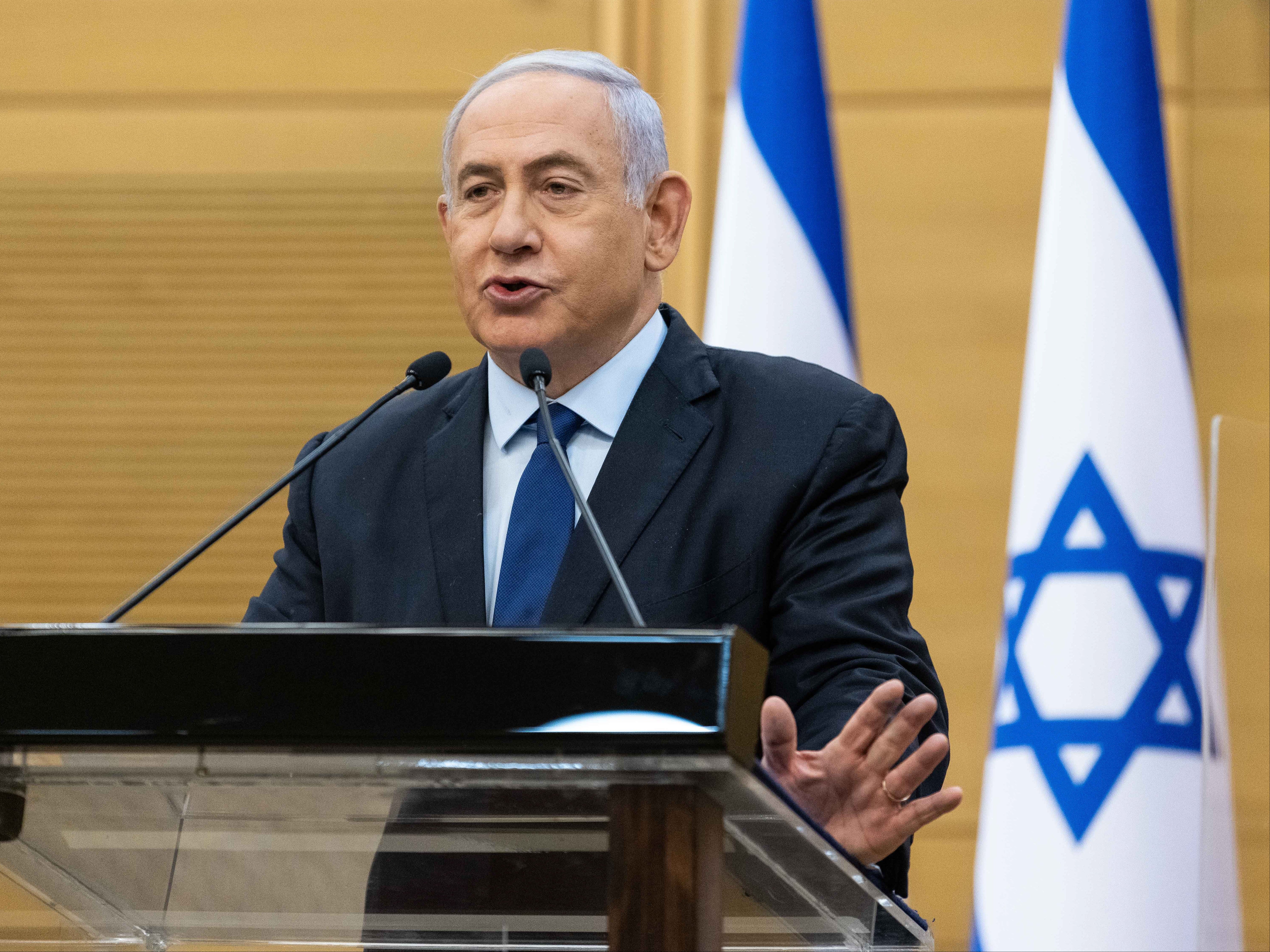Israel: Netanyahu’s disparate rivals scramble unlikely coalition to unseat veteran leader
Ultra-nationalist Naftali Bennett says he hopes to ‘save the country from a tailspin’ as first party signs on

Your support helps us to tell the story
From reproductive rights to climate change to Big Tech, The Independent is on the ground when the story is developing. Whether it's investigating the financials of Elon Musk's pro-Trump PAC or producing our latest documentary, 'The A Word', which shines a light on the American women fighting for reproductive rights, we know how important it is to parse out the facts from the messaging.
At such a critical moment in US history, we need reporters on the ground. Your donation allows us to keep sending journalists to speak to both sides of the story.
The Independent is trusted by Americans across the entire political spectrum. And unlike many other quality news outlets, we choose not to lock Americans out of our reporting and analysis with paywalls. We believe quality journalism should be available to everyone, paid for by those who can afford it.
Your support makes all the difference.Benjamin Netanyahu was battling his political rivals on several fronts on Monday as they tried to unseat him with a unified coalition.
Centrist opposition chief Yair Lapid won support from the ultranationalist Naftali Bennett on Sunday, and the pair are planning a “change” government in which Mr Bennett would serve first as prime minister in rotation with Mr Lapid.
Mr Bennett said he wanted to “save the country from a tailspin and return Israel to its course”. The pair must make deals with enough parties to gain 61 seats in the 120-seat Knesset and talks continued apace on Monday.
Haaretz reported that the coalition may eventually include New Hope, Meretz, Labour and Kahol Lavan, and possibly the majority-Arab Joint List or the United Arab List. Yisrael Beiteinu’s chair Avigdor Lieberman, a former defence minister, said his party had been the first to sign on with Mr Lapid.
Nitzan Horowitz, the leader of Meretz, said he was working to bring about a government without the veteran Netanyahu, who he accused of “lies and incitement”, according to Haaretz.
Mr Netanyahu has been in power continuously since 2009 but is now facing a string of corruption charges – which he denies – that have dogged his attempts to maintain his grip as prime minister.
Israel has held four elections in two years and, while Mr Netanyahu’s Likud Party won the most seats in March’s poll, he was unable to form a coalition government.
The 71-year-old has cast the new opposition bid as “the fraud of the century” and claimed it would put Israel in danger.
“What impact will that have on Israel's deterrent capability? How will we look to our enemies? What will they say in Iran and Gaza?” Mr Netanyahu asked on Sunday, urging his right-wing constituency to steer clear of the pact.
Israel and Gaza are still reeling from the effects of an 11-day battle that killed at least 248 people in the Palestinian enclave, including 66 children. In Israel, 12 people died, including two children.
Under Israeli law, Mr Bennett and Mr Lapid have until Wednesday to forge a ruling coalition. If they fail, others get a chance, and if they cannot do it, a fifth election will take place.
However, a source briefed on the Bennett-Lapid power-sharing talks said there had been “significant progress” toward a final deal, despite their political differences.
“There's a lot more that unites than separates,” the source told Reuters.
Mr Bennett, a former defence minister, and Mr Lapid, a former finance minister, both want to invest in education and health while helping Israel recover from the coronavirus pandemic.
However, the prospective coalition partners hold markedly different views on the Israeli-Palestinian conflict.
The right-wing Mr Bennett has favoured Israel’s moves to annex parts of the illegally occupied West Bank, while his new left-leaning allies may argue for ceding territory to the Palestinians.
The source briefed on the talks suggested to Reuters that Mr Bennett and Mr Lapid had agreed to put the issue aside, saying: “There's not going to be annexation, there's not going to be final-status withdrawals.”
“Final status” is a diplomatic term for an Israeli-Palestinian peace deal, negotiations on which stalled in 2014.
Israel's financial markets were mostly unchanged on Monday with the shekel holding steady at a rate of 3.25 per dollar.
Once a coalition is formed, investors will expect passage of a 2021 state budget. Because of the two-year political stalemate, Israel is using a pro-rated version of the 2019 budget, which was approved in mid-2018.
Additional reporting by Reuters
Join our commenting forum
Join thought-provoking conversations, follow other Independent readers and see their replies
Comments